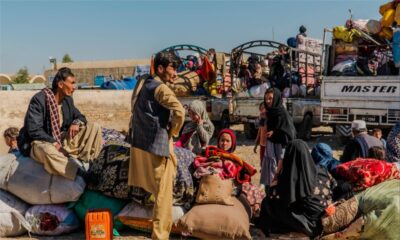Business
Afghan, Turkmen and Turkish officials meet over key TAP-500 power project
Discussions focused on developing a joint roadmap and action plan for the project
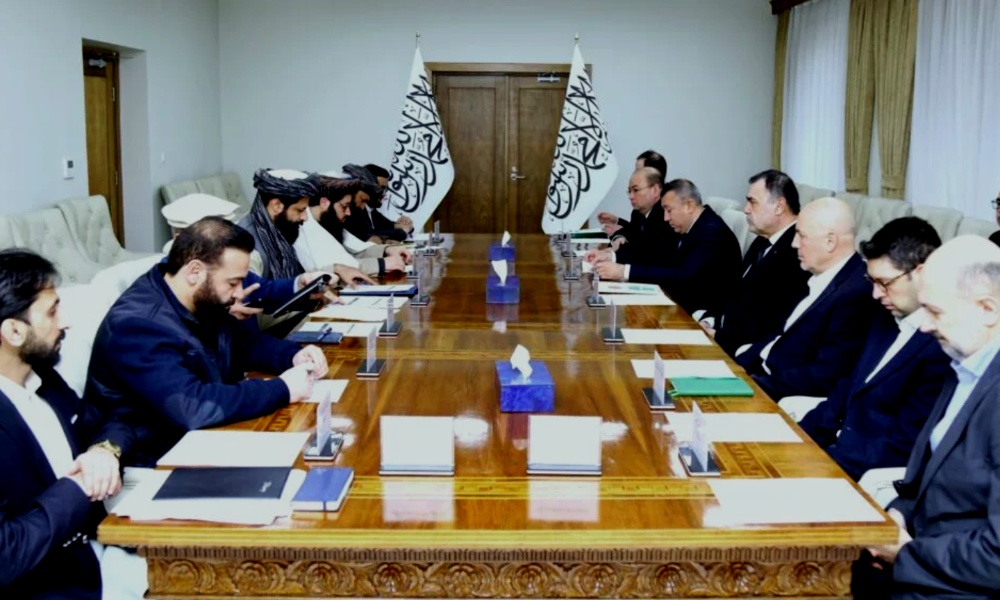
In line with the Islamic Emirate of Afghanistan’s (IEA) aim to implement major projects that have been on the cards for years, the ministry of foreign affairs this week hosted a meeting between Afghan officials, representatives of Da Afghanistan Breshna Sherkat (DABS), Turkmenistan and Turkey’s Çalık Holding Group.
The meeting aimed to initiate the implementation of the TAP-500 electricity transmission project.
Discussions focused on developing a joint roadmap and action plan for the project.
The meeting was attended by an Afghan delegation including officials from the Ministry of Water and Energy and the national electricity company, DABS; officials from Turkmenistan’s Ministry of Energy and representatives from Çalık Holding Group.
The TAP-500 project is designed to transmit high-voltage electricity from Turkmenistan to Afghanistan’s provinces of Herat, Farah, Helmand, and Kandahar.
If all domestic needs are met, then the electricity will be further exported to Pakistan, generating annual transit revenue for Afghanistan.
facilitate the implementation of the project, the Afghan side announced the establishment of a joint secretariat to coordinate efforts among various ministries and expedite the project’s execution.
The Representatives from Turkmenistan’s Ministry of Energy and Turkey’s Çalık Holding Group expressed satisfaction with the security and with the environment of cooperation on the part of Afghan officials.
All sides agreed to form technical committees and hold regular meetings to finalize agreements and implementation plans for the TAP-500 project.
Based on its economic-centric policy, Afghanistan reaffirmed its commitment to regional connectivity by highlighting progress on the CASA-1000 electricity transmission and TAPI gas pipeline projects.
After years of delays, the TAP-500 project is now set to commence, marking a significant step forward for Afghanistan’s energy sector and regional integration.
Business
Afghanistan business sector eager to attend Kazan Halal Expo and Forum in Russia
The forum will run from May 13 to 18 and will bring together experts from Russian regions; OIC member states; and other countries
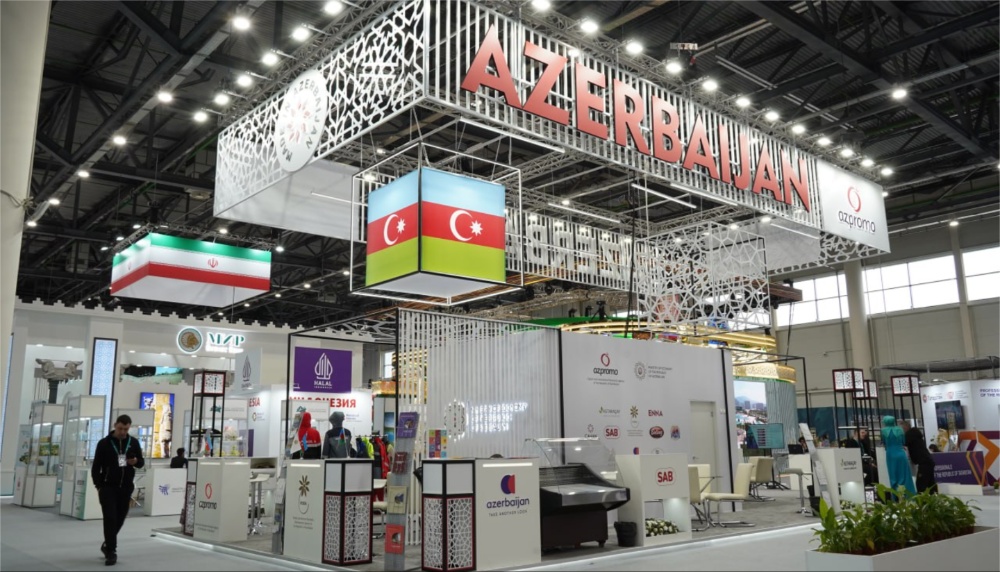
The Ministry of Industry and Commerce has confirmed that Afghanistan will participate in the XVI (16th) International Economic Forum ‘Russia — Islamic World: Kazan’ and the Kazan Halal Expo in Russia this year.
The forum will run from May 13 to 18 and will bring together experts from Russian regions; the Organization of Islamic Cooperation (OIC) member states; and other countries to discuss various topics during the 120 sessions planned.
The expo meanwhile will showcase thousands of goods from around the world that meet Halal standards.
Abdul Salam Javad Akhundzada, the ministry’s spokesman, said Sunday that Minister of Industry and Commerce Nooruddin Azizi has stated that Afghanistan is ready to participate in the event and showcase Afghan products.
According to Akhundzada, Azizi has discussed the event with members of the private sector who are eager to participate.
The expo, which is held annually alongside the forum, is Russia’s largest trading platform for Muslims.
Russia’s President Vladimir Putin said in a statement on the forum and expo recently that “Russia values its traditionally friendly ties with Muslim countries. We highly appreciate their desire to pursue an independent foreign policy and increase their role in international affairs.
“Together, we stand for the formation of a democratic multipolar world order, based on the rule of law and principles of justice, free from any form of dictatorship and discrimination.
“Of course, we are also committed to expanding mutually beneficial cooperation in all areas, from trade and investment to sports and tourism,” he said.
Putin went on to say “I believe that the work of the forum will be meaningful and constructive as always and will be held in a spirit of openness and trust. It will serve to further promote the friendship and creative partnership between our countries and peoples.”
The forum will bring together experts from Russian regions, the Organization of Islamic Cooperation (OIC) member states, and other countries to discuss:
Business
Iran exports non-oil goods worth over $2 billion to Afghanistan in 11 months
Afghanistan was Iran’s fifth top export destination between March last year and February this year
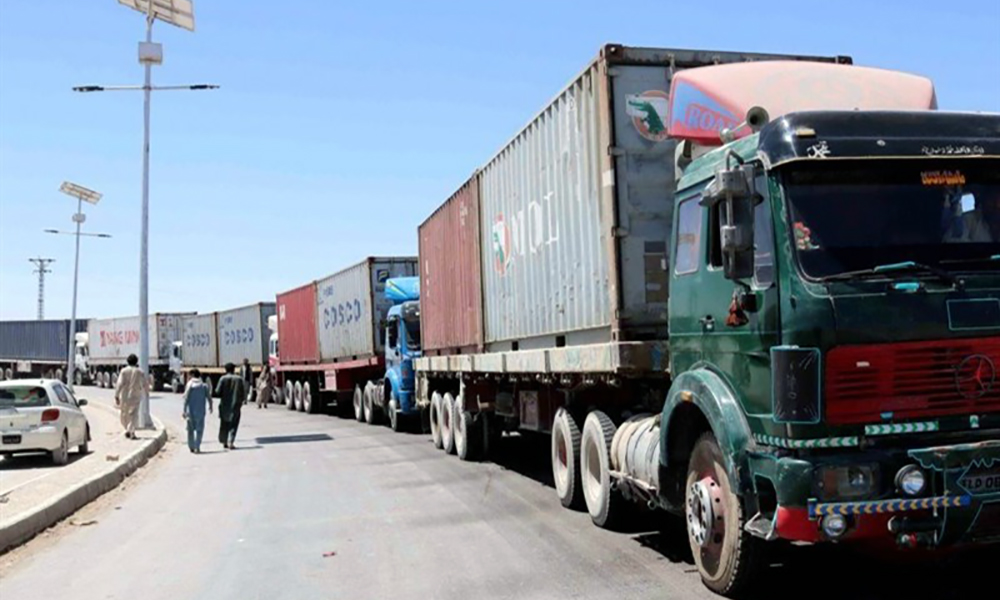
Iran exported non-oil commodities worth $2.2 billion to Afghanistan during the 11-month period from March 20, 2024 to February 18, 2025, the head of Iran Customs Administration (IRICA) said.
Foroud Asgari said Afghanistan was Iran’s fifth top export destination in the mentioned 11-month period, Tehran Times reported Sunday.
In the past year, Afghanistan and Iran have forged closer trade ties. In February, the governors of both central banks met on the sidelines of a banking technology summit in Yekaterinburg, Russia, where they discussed strengthening monetary and banking cooperation.
Also, in October, ports and maritime officials of Iran and Afghanistan met to discuss investment opportunities for the Afghan private sector in Iran’s southeastern Chabahar Port.
Tehran Times reported that this meeting was attended by the director general of the Ports and Maritime Department of Sistan-Baluchestan Province, the governor-general of the province, some Iranian MPs, and officials of the Afghanistan Trade and Industry Ministry.
Meanwhile, in a meeting with an Iranian trade delegation in Kabul last August, Afghanistan’s interim Deputy Prime Minister Mullah Abdul Ghani Baradar Akhund said that his country is eager to attract Iranian investors in order to develop the Afghan mining industry, generate solar electricity and expand railway connectivity.
The Iranian delegation also proposed to launch a joint special industrial zone with Afghanistan.
Afghanistan supplies more than 80 percent of its market needs through imports, and imports from Iran constitute 25 percent of this amount.
The establishment of national security and the central government in Afghanistan over the past two years have improved the conditions of trade between the two countries.
Business
Trump unveils first $5 million ‘gold card’ visa

Holding a prototype that bore his face and an inscription “The Trump Card”, the Republican president told reporters that the special visa would probably be available “in less than two weeks”.
“I’m the first buyer,” he said. “Pretty exciting, huh?”
Trump previously said that sales of the new visa, a high-price version of the traditional green card, would bring in job creators and could be used to reduce the US national deficit.
The billionaire former real estate tycoon, who has made the deportation of millions of undocumented migrants a priority for his second term, said the new card would be a route to highly prized US citizenship.
He said in February that his administration hoped to sell “maybe a million” of the cards and did not rule out that Russian oligarchs may be eligible.
(AFP)
-

 Latest News5 days ago
Latest News5 days agoMinistry of Economy calls on US to release Afghanistan’s frozen funds
-

 Latest News5 days ago
Latest News5 days agoPakistan ‘extends’ deadline for a week for Afghans to leave the country
-

 World5 days ago
World5 days agoAs Iran tensions build, US military moves warplanes to reinforce Middle East
-

 Sport5 days ago
Sport5 days agoIPL 2025: Batters in race for prestigious Orange Cap
-
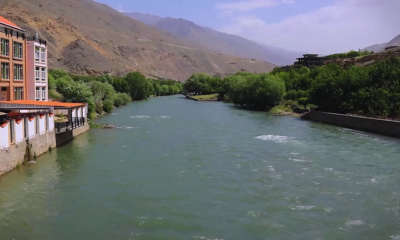
 Latest News4 days ago
Latest News4 days agoPanjshir to Kabul water conduit project ‘waiting for budget approval’
-
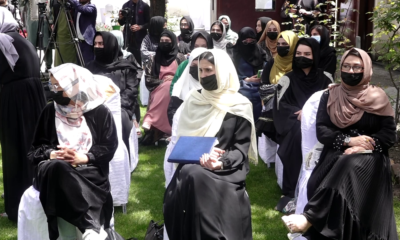
 Latest News5 days ago
Latest News5 days agoFemale journalists complain about lack of access to accurate and timely information
-

 Business4 days ago
Business4 days agoExports to Pakistan grind to a halt over faulty scanner at Torkham
-

 Regional4 days ago
Regional4 days agoMilitary confrontation seems inevitable if no new Iran nuclear deal, France says












